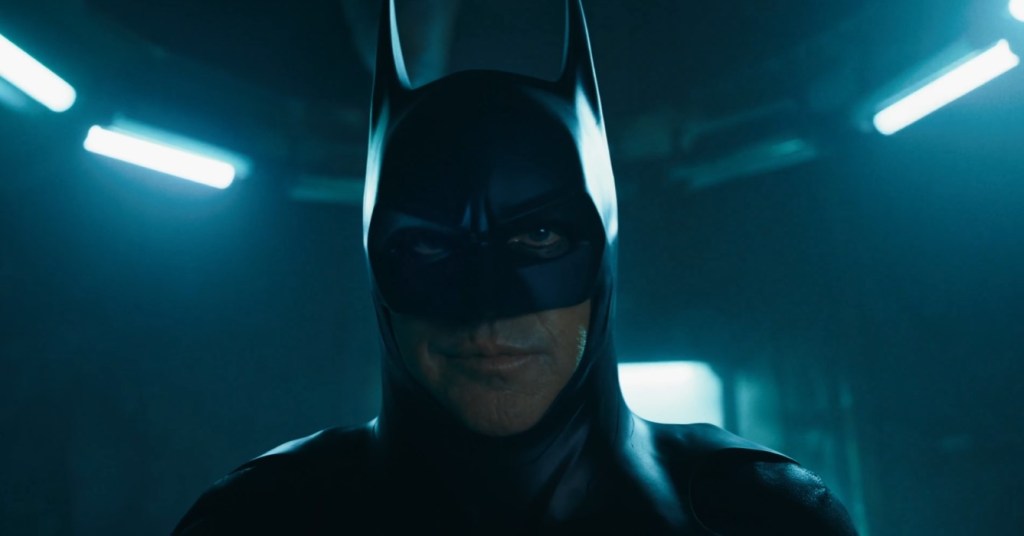The Flash has had a disastrous second weekend, plummeting more than 70% from what was already a disappointing opening weekend. To put this in perspective, former Hollywood Reporter editor Matt Belloni noted that this puts it in competition with Morbius for the biggest second weekend drop of any superhero film release ever. This is catastrophic.
One anonymous industry veteran told Variety the film’s financial performance is “an unmitigated disaster.” By midweek, The Flash had sunk to third place at the box office, behind Elemental and Spider-Man: Across the Spider-Verse. Assuming that the movie has comparable legs to recent underperforming superhero films like Ant-Man and the Wasp: Quantumania (2x) and Black Adam (2.51x), multiple analysts have reasonably argued it will struggle to hit a total of $350 million worldwide.
This is bad news for Warner Bros. The film has a production budget of roughly $220 million, not including marketing. The rule of thumb is that a movie needs to gross at least two-and-a-half times its production budget to be profitable, to account for costs not included in the film’s production budget. Journalist Daniel Richtman has suggested that the marketing budget on The Flash may have been as high as $150 million, suggesting that it might need to perform even better than that to break even.
Last year, Warner Bros. made industry headlines when it decided to accept a tax write-off on a number of almost-complete films, including Batgirl and Scoob!: Holiday Haunt. It was an incredibly cynical move, and there’s a strong argument to be made against consigning any artistic project of that scale to the void to accept a comparatively meager write-off. Still, in hindsight, it’s hard to argue that Warner Bros. wouldn’t have been smarter to accept the write-off on The Flash than Batgirl.

After all, accepting the write-off would have saved a lot of money in terms of promotion and distribution. The only loss would have been on the $220 million production budget. Assuming that the write-off would save the same $15 million to $20 million for The Flash that it did on Batgirl, that would mean a total loss of between $200 million and $205 million. It seems likely that, in the best-case scenario, that will be a smaller loss than the company experienced by releasing the movie into theaters.
It is hard to imagine a world where Batgirl would have represented a loss on anything resembling the scale of The Flash. Most obviously, the film had a production budget of $90 million, meaning that it would need to earn about $225 million to break even. It’s obviously impossible to prove a counterfactual, but that is a box office performance comparable to something like Birds of Prey, Bullet Train, or Dungeons & Dragons: Honor Among Thieves. That doesn’t seem unattainable, particularly given the advantages it has.
Batgirl would have had all of the advantages that The Flash has and none of the disadvantages. Most obviously, The Flash was a movie that was sold heavily on the Batman brand rather than the Flash brand. Michael Keaton’s Bruce Wayne and Danny Elfman’s themes were all over the promotional material for the film. This makes sense, as the Batman brand reliably sells for Warner Bros. The Batman grossed $770 million. Joker earned over a billion dollars, outperforming Star Wars: The Rise of Skywalker.
However, The Flash was still called The Flash. As much as the trailers and publicity might foreground the importance of the financially viable Batman brand within the movie, the movie’s title made no direct reference to what the studio had decided was its more marketable asset. In contrast, the title of Batgirl does a lot of that selling on its own. Audiences instinctively understand the connection, given the word “Bat” in the title and the character’s multimedia history with the Batman brand.

This ties into the second big advantage that Batgirl would have had over The Flash. One of the reasons that Warner Bros. had to lean so heavily on the Batman brand to sell The Flash was because of the controversies over star Ezra Miller. Miller was understandably kept away from the press, outside of a photocall at the premiere. With Michael Keaton filming Beetlejuice 2 in the United Kingdom, a lot of the press of The Flash fell to supporting actor Sasha Calle, playing Supergirl.
Assuming in this alternate scenario that Keaton would still have been largely unavailable to do press owing to his commitments to Beetlejuice 2, Batgirl would still avoid these same issues. Most obviously, Leslie Grace has none of the baggage associated with Ezra Miller. Indeed, Grace is close friends with Calle, and it seems likely she would have committed just as enthusiastically to the press circuit. In terms of basic movie marketing, Batgirl would have had a star who could do promotional interviews.
There were other promotional issues. The Flash doesn’t really have a villain. The closest is probably an alternate version of the title character, also played by Ezra Miller. As such, there’s no publicity to mine there. In terms of secondary antagonists, The Flash features the return of Michael Shannon as General Zod. While Shannon is a wonderful interview subject, his tendency to talk about how the film “wasn’t quite satisfying for (him), as an actor” did little to build enthusiasm for the movie.
In contrast, Batgirl had an ace in the hole. The movie’s villain was played by Brendan Fraser. Fraser literally just won the Best Actor Oscar and is in the midst of a career revival that has been termed the “Brenaissance.” Fewer working actors have built up comparable levels of goodwill. As the star of the Mummy franchise, Fraser is a figure primed to capitalize on the modern wave of Millennial nostalgia. Even more basically, Fraser is just an incredibly compelling chat show guest.

There’s an argument to be made that the goodwill for Fraser elevated The Whale. The film garnered tepid reviews and its momentum flagged early in awards season, but Fraser just powered through. At times, it seemed like Fraser had been informally adopted by the cast of season frontrunner Everything Everywhere All at Once, appearing in photos with them at the SAG Awards and the Critics Choice Awards. Having Fraser sell Batgirl certainly couldn’t hurt and would probably help.
Sight unseen, it’s impossible to argue whether Batgirl would have been more warmly received than The Flash. However, it is hard to believe that the low-budget solo superhero film would have had the same problems that hounded The Flash. At the very least, it seems unlikely that Batgirl would have been as empty and hollow as The Flash, a storing house for intellectual property that undermined its own central themes in favor of quick fan service. Sure, studio insiders argued Batgirl was “irredeemable,” but Zaslav also argued The Flash was “the best superhero movie (he’d) ever seen,” so the company may not be the best judge.
There is perhaps an argument to be made that viewers would have been confused by a film starring Michael Keaton as an older Batman without the “explanation” of the multiversal reset in The Flash, but that doesn’t really track. After all, cinema-goers have no problem accepting a multitude of Batman-adjacent properties existing simultaneously, from The Batman to Joker to the DCEU. If the movie was good enough, audiences would follow along, particularly if Batgirl was smart enough to prioritize its own story ahead of continuity references.
Still, even if Batgirl were as cynical and pointless as The Flash, it would have one crucial advantage over that exercise in corporate lawn furniture rearrangement: It only cost $90 million. This is the oft-unarticulated problem at the heart of debates over “superhero fatigue.” The problem isn’t that the third movie in the Ant-Man franchise “only” grossed just under half a billion dollars. The problem is that the third movie in the Ant-Man franchise cost so much to make that it needed to earn $600 million to break even.

These movies cost far too much, and it is a problem that so many of them need to earn that much money to avoid running massive losses. It is as big an existential threat to the industry as the black hole money pit that was streaming production. This is not a problem exclusive to superheroes. Disney’s recent remake of The Little Mermaid reportedly cost $250 million, and Fast X reportedly cost $340 million, which means their box office totals of $499 million and $689 million, respectively, aren’t good enough.
There is little indication that this is going to change. At Disney, CEO Bob Iger recently ousted Ike Perlmutter. Perlmutter had long been a conservative voice at the studio, reportedly advocating against projects like Captain Marvel and Black Panther. However, while clashes with Kevin Feige led to Perlmutter being marginalized within Marvel Studios, he remained a major voice within the larger corporation. According to Perlmutter, he was eventually fired because he argued for cutting budgets.
Of course, Perlmutter could be lying to save face. Still, to quote a famous headline from Clickhole, “the worst person you know just made a great point.” Even Iger accepted that Disney needed to cut costs. However, he refused to cut the budgets of the company’s upcoming blockbusters and instead decided to lay off 7,000 employees. There is going to have to be some sort of correction in theatrical distribution, just as there recently has been in streaming production. The longer it takes, the more painful it’s going to be.
Warner Bros. chose The Flash over Batgirl because it was the bigger project. It had a larger budget and was more central to the company’s brand. Batgirl had been intended to go to HBO Max, and it was “said not to have the spectacle that audiences have come to expect from DC fare.” However, the box office disappointment of The Flash suggests that audiences aren’t necessarily being drawn by “spectacle.” That is not the make-or-break commodity here. Bigger is not always better; box office doesn’t scale with budget. Just look at Joker.
At the nub of it, more than any argument about the movie’s content or quality, its stars or its brand, this is the argument for Batgirl over The Flash. Even focusing on the absolute worst-case scenario, it would be statistically impossible for Warner Bros. to lose as much money on Batgirl as it has on The Flash. Sometimes, the bigger a movie is, the harder it falls.






Published: Jun 26, 2023 11:00 am